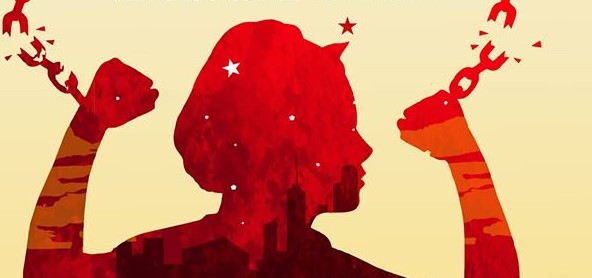PRESS RELEASE
6 November 2019
On 13/14 November Southall Black Sisters (SBS) is intervening in an important case (Akhter v Khan) with far-reaching implications for minority women’s rights.
As part of the One Law for All campaign, we will be holding a protest outside the Court of Appeal to let the government and the public know that minority women will not tolerate being trapped in marital captivity and treated as subjects of their so called religious communities rather than as citizens with equal rights.
Background
On 31 July 2018, Mr Justice Williams, a family court judge decided that Ms Nasreen Akhter was entitled to a decree of nullity of marriage, following the break-up of her 18 year old marriage. She had had a nikkah ceremony resulting in a Muslim marriage contract between herself and her husband, Mr Mohammed Khan. The couple were widely recognised as married in Britain and the UAE (where they lived from 2005 to 2011) for tax and other purposes. Although Ms Akhter wanted a civil marriage and believed one would take place, it never happened because Ms Akhter’s husband refused to also have a civil marriage. When the marriage broke down, (it is suggested that he wanted to take another wife) he said that he owed his wife nothing because their relationship constituted a ‘non-marriage’.
In court, the judge concluded that in the interests of human rights and justice, the marriage should be recognised as ‘void’. He granted Ms Akhter a decree of nullity which allows her to claim the financial remedies such as maintenance to which she may be entitled to following the break- up of her marriage.
Surprisingly, the Attorney-General on behalf of the government has intervened in this case and will argue that Mr Justice Williams was wrong to recognise the marriage as ‘void’.
Our Intervention
SBS is intervening in this case because we are clear that if the appeal is successful, the consequences for minority, especially Muslim women, will be profoundly discriminatory. Christian women in a similar situation would be able to have their marriages declared ‘void’, and thus have access to financial remedies from the courts, but women who have married in another religious system, may not.
Pragna Patel of SBS says:
“If this appeal is upheld, it will force Muslim and other women to turn to Sharia ‘courts’ that already cause significant harm to women and children. If this appeal succeeds then the government will succeed in outsourcing justice to unaccountable and fundamentalist inspired community based systems of arbitration. This amounts to an endorsement of parallel legal systems and an abrogation of its own legal obligations to uphold principles of the rule of law. This is not about recognising religious marriages; it is about the state guaranteeing equality to all before the law.”
Maryam Namazie of One Law for All says:
“Mr Justice Williams’ decision to consider a Sharia marriage a void marriage is an important one for women’s rights. It doesn’t recognise the Sharia marriage but by deeming it annulled, opens the way for Muslim women to secure financial remedies if they so choose where none would otherwise be available. Unsurprisingly, the Government has appealed this crucial decision. The Government is always perfectly happy to relegate minority women to kangaroo courts and faith-based parallel legal systems in order to appease fundamentalists and manage minority communities at the expense of women’s rights. If the appeal is upheld, it will further discrimination against minority women.”
Gita Sahgal of One Law for All says:
“The One Law for All campaign’s research has shown that the collapse of civil marriages in Muslim communities has been used to spread the influence of sharia ‘courts’. Women are trapped in a legal limbo unable to divorce, and unable to remarry. We believe all marriages must be registered; but we support this judgement which voids the Muslim marriage contract. The government, which has failed to act against sharia councils, is now threatening to send women back to them, by closing off this remedy.“
END
For further information, contact:
Pragna Patel and Janaya Walker, Southall Black Sisters: pragna@southallblacksisters.co.uk, janaya@southallblacksisters.co.uk – 07985399740
Gita Sahgal and Maryam Namazie, One Law for All: www.onelawforall.org.uk
onelawforall@gmail.com – 07719166731
NOTES
1. The case in question is Akhter v Khan [2018] EWFC 54. The full judgment can be found here: http://www.bailii.org/ew/cases/EWFC/HCJ/2018/54.html
2. Southall Black Sisters is one of the UK’s leading women’s organisations for black and minority ethnic (BME) women. Established in 1979 we went on to set up an advice, resource, campaigning and advocacy centre with a particular focus on South Asian women. Whilst based in West London, we have a national reach. Our work by its very nature addresses issues of multiple or intersectional discrimination, involving the simultaneous experience of race, sex and other forms of discrimination. The bulk of our work is directed at assisting women and children – the overwhelming victims of domestic and other forms of gender-related violence – obtain effective protection and assert their fundamental human rights. For the last decade or so we have challenged the rise of religious fundamentalism and its impact on women’s rights, education and the law. See our website for more information: https://southallblacksisters.org.uk/campaigns/religious-fundamentalism/
3. The One Law for All Campaign was launched on 10 December 2008, International Human Rights Day, to call on the UK Government to recognise that Sharia and religious courts are arbitrary and discriminatory against women and children in particular and that citizenship and human rights are non-negotiable. The Campaign aims to end Sharia and all religious courts on the basis that they work against, and not for, equality and human rights. See our website for more information: https://onelawforall.org.uk/10-years-of-one-law-for-all-timeline/

